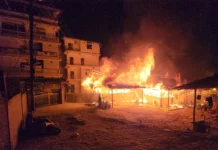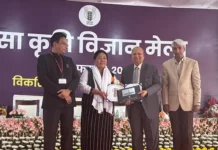Monday Musing
[ M Doley ]
Teacher shortage in schools in the state, especially in remote and far-flung areas, continues to be a worrying issue that has been affecting the academic performance of the students.
Reports of students staging protests and calling bandhs to draw the attention of the authority towards the problem frequently make headlines. The reluctance of many teachers to serve in remote areas is often blamed for this shortage.
In July this year, thousands of students in Longding district staged protests, demanding the posting of teachers. Recently, a group of students from a school in Pakke-Kessang district marched through the night to the district headquarters for the same thing, which raised the eyebrows of many. Earlier this week, the All West Kameng District Students’ Union enforced a bandh as transferred teachers failed to report for duties despite repeated pleas. The students threatened to intensify their democratic movement if their demand continues to fall on deaf ears.
A couple of months ago, the Education Department issued teachers’ transfer and posting order. According to the department, it received numerous appeals from teachers for stay and cancellation on various grounds, including health. On 20 September, the department directed 120 teachers, who applied on medical grounds, to undergo physical verification at a medical facility in Naharlagun to ensure that their requests are genuine. The direction appears to be the first of its kind from the department.
Apart from teacher shortage, some other concerning issues, such as students learning on mats due to lack of benches, and school premises being occupied by workers were also reported in the local media.
In a welfare state, where education is one of the topmost priority sectors, students should not have to cry out for teachers. Overall, lack of these basic facilities not only portrays the department in a poor light but also directly affects the academic performance of students.
There is a policy on teachers’ transfer and posting, which ensures equitable and need-based deployment of teachers and safeguards students’ academic interests. Despite having a well-defined policy on teachers’ transfer and posting, the students continue to face teacher shortage, which seems unjustifiable. However, the department’s recent initiative to resolve the issue is a welcome step.
Additionally, a pass percentage of below 40 in some districts in this year’s Class 10 CBSE examinations warrants reassessment of the teaching and learning processes from the elementary level.
In this direction, the teachers can play a crucial role by identifying areas that need improvement and recommending their findings to the higher authorities to initiate remedial measures for improved students’ learning outcomes.
Apart from this, conducting periodic training programmes for teachers to upgrade their teaching skills is vital.




